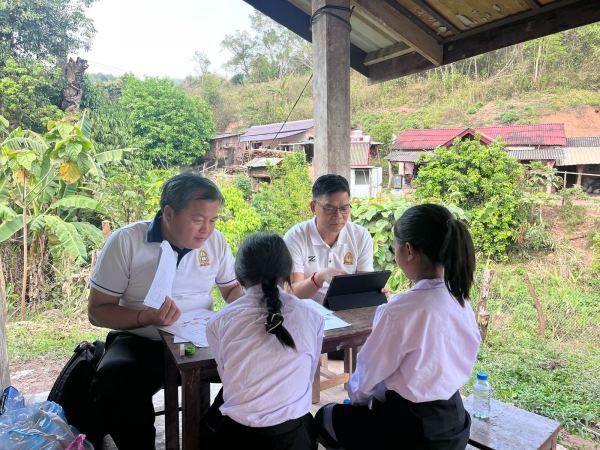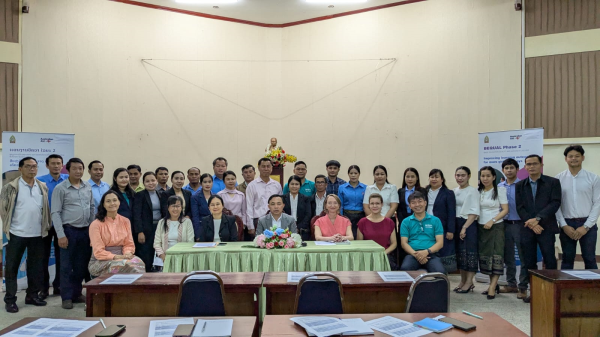KPL
In March and April, twenty-six enumerators from the Ministry of Education and Sports (MoES), with technical and financial support from Australia through the Basic Education Quality and Access in the Lao PDR (BEQUAL) program, are carrying out a second year of Early Grade Language Assessments (EGLA) as part of the ‘Inclusive Teaching and Learning Evaluative Study’.

Students doing Grade 2 EGLA test in remote areas
(KPL) In March and April, twenty-six enumerators from the Ministry of Education and Sports (MoES), with technical and financial support from Australia through the Basic Education Quality and Access in the Lao PDR (BEQUAL) program, are carrying out a second year of Early Grade Language Assessments (EGLA) as part of the ‘Inclusive Teaching and Learning Evaluative Study’.
The study is being conducted over three years from 2024 – 2026. A group of students from 120 schools across 30 districts within seven provinces - Phongsaly, Luang Namtha, Bokeo, Houaphanh, Xiangkhouang, Khammouane and Savannakhet - are participating in the study. Last year 883 students participated in a grade one language test. This year the same students are participating in a grade two language test. Next year they will participate in a grade three test.
 The enumerators attended a four day training on the grade 2 EGLA test
The enumerators attended a four day training on the grade 2 EGLA test
Students selected for the study have a home language other than Lao, are living with a disability or have lower school attendance. Past national assessments of student learning outcomes have identified these factors as contributing to lower performance on tests. The EGLA is specifically designed to find out which teaching strategies are most effective for students whose learning outcomes are affected by these factors. This will help tailor future educational approaches to meet their unique needs.
.jpg) Students doing Grade 2 EGLA test in remote areas
Students doing Grade 2 EGLA test in remote areas
“The aim of the longitudinal study is to understand how this group of students are progressing from year to year after teachers receive support and training. It will help us identify what teaching strategies work for supporting all students’ learning, especially those facing disadvantages that quality teaching can help to overcome,” said Ms Manoly Dongvan, Deputy Director General, Research Institute for Educational Sciences (RIES).
“The findings will provide valuable insights that can inform educational policies and practices, contributing to the improvement of the education system. Ultimately, the goal is to enhance learning outcomes for all students, ensuring they receive the support necessary to succeed academically and socially,” said Ms Vanessa Hegarty, First Secretary, Australian Embassy.
 Students doing Grade 2 EGLA test in remote areas
Students doing Grade 2 EGLA test in remote areas
From 18 to 21 March, the 26 enumerators from RIES and Dongkhamxang Teacher Training College attended a four-day training on the grade two EGLA test. Starting 24 March, they started conducting field work accompanied by provincial and district education personnel. The data will be analysed by ACER and BEQUAL in May and June, with results available in September.
 The enumerators attended a four day training on the grade 2 EGLA test
The enumerators attended a four day training on the grade 2 EGLA test
“This study shows the Ministry of Education and Australia’s continued commitment to creating schools where students feel like they belong and want to actively engage in the learning process – leading to better learning outcomes for students,” Ms Manoly added.

The team of enumerators from RIES and Dongkhamxang TTC
Ms Vanessa concluded, "I look forward to the results of this study. Australia is committed to furthering our partnership with the Ministry of Education to identify and advance teaching methods that foster an inclusive learning environment for all students."
KPL